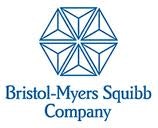Bloomberg reported this morning that Bristol-Squibb Myers (NYSE: BMY) approached Amylin (NASDSAQ: AMLN) with a $3.5 billion offer or $22 per share. The headlines indicate that the bid was rejected and that BMY has not resubmitted an offer. In prior press releases, it appeared that AMLN was looking for a commercial partner outside of the US. Finding a partner would imply the company is not selling itself. However, with AMLN’s stock up over 45% on the news today and the massive jump in valuation, management will be hard-pressed to choose an ex-US deal versus a sale. Shareholders including hedge fund managers Christopher James, Jacob Gottlieb, Carl Icahn, and Mark Kingdon would probably not stand for it and logically so.
BMY and AstraZeneca (NYSE: AZN) currently have the oral diabetes drug, Onglyza, on the market. However, the FDA recently rejected BMY and AZN’s other diabetes drug dapagliflozin, a sodium-dependent glucose cotransporter (SGLT2) candidate and neither company has a GLP-1 space product. AMLN’s recently-approved Bydureon, an injectable GLP-1 agonist would be a good candidate to fill the GLP-1 segment. There are some promising potential cost synergies for BMY given that it already has a 700-salesperson strong diabetes sales force in the US.
AMLN has been very successful in bringing diabetes compounds to the market for the treatment of diabetes. Byetta (Type II diabetes) was co-promoted up until last December with Eli Lilly (NYSE: LLY). AMLN and LLY had a bit of a falling out when LLY signed an agreement to co-promote Lindjeta, a DPPIV inhibitor and a competitor to Byetta. And while Byetta had been losing market share to Novo Nordisk’s (NYSE: NVO) Victoza, with the initial strong sales of Bydureon, AMLN is well-positioned to reassert leadership in the GLP-1 space. With Bydureon entering its commercialization phase, this will be an important driver for revenue growth in the next couple of years. Peak sales of $1.5 billion are estimated for Bydureon.
Frankly, we think that BMY’s $22/share offer is low and as a result, will be outbid. AMLN’s diabetes drugs would be attractive to a number of other large pharma and specialty pharma companies, including Forest Laboratories (NYSE: FRX) and Takeda Pharmaceuticals (FRA: TKD), which already has a diabetes portfolio. NVO, GSK, and Sanofi (NYSE: SNY) already have GLP-1 products either in the pipeline or on the market, so we think it unlikely that any of those will make a bid. Moreover, it has been pointed out that BMY has a weak presence in European and emerging markets diabetes. A company like AZN would be better equipped to accelerate sales on a worldwide basis. Thus, it seems that AMLN has a decent shot at a competitive bidding process and subsequent valuation exceeding the $3.5 billion bid. Keep in mind that AMLN would bring an acquirer over $1 billion in net operation losses (NOLs). We would be patient on this front to see if a higher bid materializes for AMLN.
On a separate note regarding BMY, the company announced this morning that it entered into an agreement to develop diagnostic assays with Meso Scale Discovery. The assays will serve to measure cerebrospinal fluid biomarkers as part of BMY’s continued efforts in the Alzheimer’s disease space. The assays will be developed based on Meso Scale Discovery’s ® MULTI-ARRAY technology platform. There are preliminary plans to release the assays in the Q2 2012. Terms of the agreement were not disclosed. Overall, we like BMY for its pipeline e.g., Yervoy (malignant melanoma), Hepatitis C products, and apixaban (blood clots), targeted approach to emerging markets, and restructuring efforts to become a pure play pharma company.
